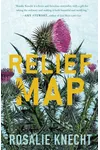Picture a Pennsylvania-born storyteller who swapped social work by day for crafting queer spy thrillers by night—meet Rosalie Knecht! With her whip-smart Vera Kelly series, Knecht has redefined espionage fiction, blending Cold War intrigue with LGBTQ+ narratives and historical flair. Her knack for complex characters and evocative prose has made her a standout in contemporary American literature.
Born in Coatesville, Pennsylvania, Knecht’s journey from small-town roots to literary stardom is as compelling as her novels. A social worker, translator, and writer, she balances empathy with sharp storytelling, creating worlds where spies navigate both political and personal battlegrounds.
The Making of Rosalie Knecht
Rosalie Knecht grew up in suburban Pennsylvania, where her early love for literature took root. She studied at Oberlin College before earning a graduate degree at City University of New York. Her career path was anything but linear—she worked as a Fulbright English Teaching Assistant in Argentina and translated César Aira’s The Seamstress and the Wind. These experiences shaped her global perspective, infusing her writing with rich cultural textures. As a social worker in New York City, Knecht honed her understanding of human struggles, which later informed the depth of her characters.
Rosalie Knecht’s Unforgettable Stories
Knecht’s breakout came with the Vera Kelly series, a trilogy that reimagines the spy genre through a queer, female lens. Who Is Vera Kelly? (2018) introduces Vera, a CIA agent in 1960s Argentina, navigating a coup while grappling with her identity. The novel’s alternating timelines and introspective style earned praise for its fresh take on espionage. Vera Kelly Is Not a Mystery (2020), an Edgar Award winner, follows Vera as a private investigator, blending noir aesthetics with historical queer life. The trilogy concludes with Vera Kelly: Lost and Found (2022), a sapphic historical tale set in 1971, exploring love and family.
Before Vera, Knecht debuted with Relief Map (2016), a literary novel about a fugitive in a small town, showcasing her ability to weave suspense with emotional depth. Her translation work, particularly Aira’s surreal narrative, highlights her versatility. Knecht’s style—crisp, brooding, and character-driven—merges thriller pacing with literary nuance, often centering LGBTQ+ themes and the challenges of marginalized identities in historical settings.
Why Rosalie Knecht Matters
Rosalie Knecht’s impact lies in her ability to humanize the spy genre, making it accessible and inclusive. Her portrayal of Vera Kelly as a queer woman navigating a homophobic era resonates with readers seeking diverse representation. By grounding espionage in emotional and historical realities, Knecht challenges the male-dominated tropes of the genre. Her awards, including the Edgar and Sue Grafton Memorial, underscore her influence, while her social work roots add authenticity to her empathetic storytelling. Knecht’s work invites readers to see spies not as glamorous heroes but as flawed, relatable figures.
- Born: Coatesville, Pennsylvania
- Key Works: Relief Map, Vera Kelly series
- Awards: Edgar Award, G.P. Putnam’s Sons Sue Grafton Memorial Award
- Other Roles: Social worker, translator
Ready to dive into a spy thriller with heart? Grab Who Is Vera Kelly? and lose yourself in Rosalie Knecht’s vibrant, subversive world!


